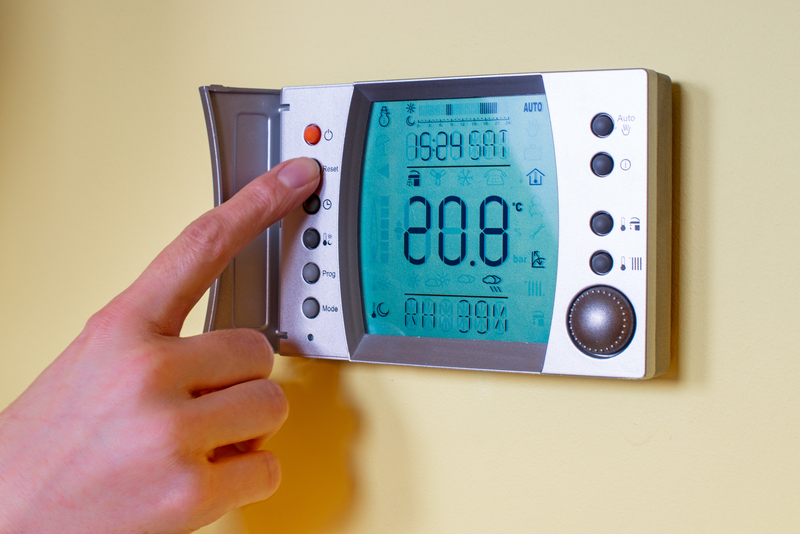We recently published a guide to all the steps you should take to keep your house safe while it’s unoccupied. One key issue we covered was the question of what you should do with your central heating while your house is unoccupied.
Can You Turn Heating Off in an Unoccupied House?
It’s generally a bad idea to turn your utilities off for extended periods, particularly during the winter. But if you’re going to leave the heating running, what sort of temperature should you aim for?
If you have any specific questions about your property, particularly regarding risk management or home insurance, our friendly team is always happy to help. Get in touch by calling 0208 290 9086 or emailing personal@anthonyjones.com.
Why Do You Need To Heat an Unoccupied Home?
Underheating a home through the winter can cause the pipes to freeze. This alone can damage your boiler, but if can also lead to a host of much more serious problems. When water freezes it expands, which can cause cracks in pipes. This is why frozen pipes invariably lead to floods.
A flood can be devastating in any property, at any time. Yet if your home’s unoccupied, the chances are that nobody will notice the flood for a long time. In this way, even a small leak could eventually lead to significant damage.
You don’t need to worry about keeping an unoccupied home cool during the summer months. Yet you really should worry about keeping an unoccupied home relatively warm during the winter months.
What Temperature Should I Leave My Unoccupied Home Through Winter?
You don’t need to leave your heating on full blast through the winter months while your home is unoccupied. Adjust your thermostat to at least 12.5°C for as long as your home is unoccupied. This will keep your system running and help prevent your pipes from freezing. Yet as it’s a relatively low temperature, it shouldn’t cost you too much in the way of fuel bills.
If you are worried about the cost of heating an unoccupied home, think of it this way: However much you pay, it will be a lot less than the amount you’d have to pay to fix a broken boiler, or to address the damages resulting from flooding.
Do I Really Have To Keep The Heating On All The Time?
While it might be best practice to leave your thermostat at a constant temperature while your home is unoccupied, there are a few other things you could try.
If you have a timer, you could set your timer to come on for a few hours at key points through the day. Go for a temperature of around 14°C to come on very early in the morning, and very late at night – the coldest parts of the day.
Some modern boilers have smart functions where you can use an app to make the heating come on when the temperature drops to certain levels. While your home’s unoccupied, you could programme your heating to aim for 14°C every time the temperature reaches zero, or lower.
Alternatively, you could completely eliminate the risk of frozen pipes through draining your system and cutting off your supply completely while your house is unoccupied. Yet as we’ve previously covered, this extreme approach may prove to be more trouble than its worth. Read our full guide to turning off the water in an empty property.
Do You Have Insurance For an Unoccupied Home?
Most standard home insurance policies are voided if the property is unoccupied after 30-60 days. If your property is going to be unoccupied for a while – for example, throughout the probate process – then you will need specialist unoccupied home insurance.
We can provide expert risk management advice along with specialist bespoke insurance to help you keep your property safe while it’s unoccupied. Get in touch with us on 0208 8290 9086 or email us at personal@anthonyjones.com.


